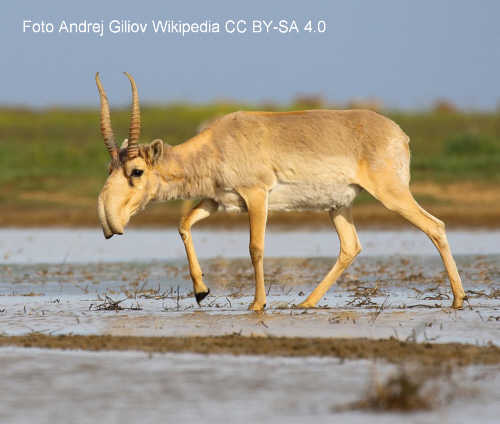Saiga Antelope (Saiga tatarica)
Description of the animal

Appearance
The saiga antelope is notable for its extremely distinctive nose, which is an adaptation for filtering out dust kicked up by the herd. They have a yellowish-brown to pale red coat in summer, which becomes thicker and white in winter.
Distribution
Saiga antelopes are found in several fragmented populations in Central Asia, including Kazakhstan, Mongolia, Russia, Turkmenistan, and Uzbekistan.
Habitat
They inhabit open steppe and semi-desert areas, avoiding densely vegetated areas and forests.
Behavior
Saigas are known for their long migrations and the ability to travel large distances in search of food. They are social animals, forming large herds that can number in the thousands.
Diet
They are herbivores, feeding on a variety of plants, including herbs, shrubs, and lichens, especially during winter when other food sources are scarce.
Reproduction
Females give birth to one or two calves in the spring after a gestation period of about five months. Calves can run within a few days of birth.
Threats
The saiga antelope has faced a dramatic decline due to hunting for its meat and horns, habitat loss, and diseases. Conservation efforts are in place to help protect this unique species.
